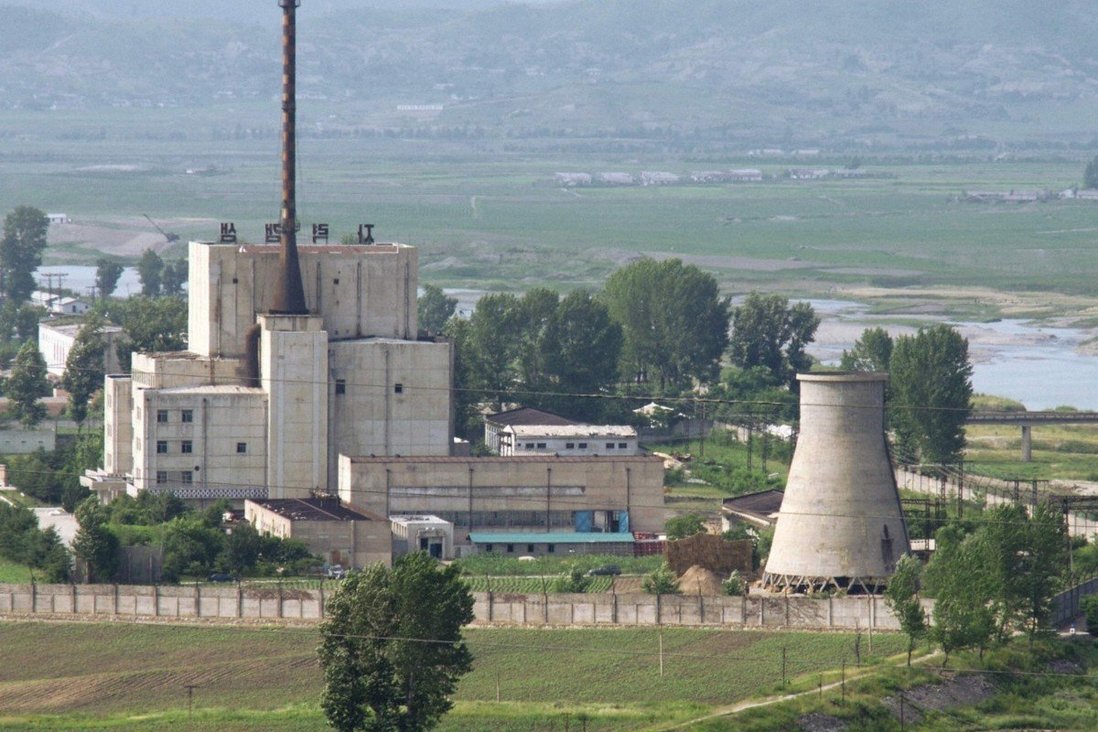South Korea appears to be downplaying renewed tensions over North Korea’s apparent restarting of its nuclear activity, possibly in an attempt to leave room for dialogue with the reclusive regime amid a flurry of diplomacy efforts among allies.
Asked if the restarting of the Yongbyon complex is a violation of inter-Korean agreements made in summit talks in 2018, First Vice Foreign Minister Choi Jong-kun said during a parliamentary session Tuesday: “I don’t think so.”
“Tangible measures the North has taken since the summit talks are still put in place,” he added, referring to the shutdown of the Punggye-ri nuclear test site and the Dongchang-ri engine test and missile launch site.
 |
The Yongbyon nuclear complex in North Korea (Yonhap) |
The remarks came as Seoul and Washington have remained mum over a recent International Atomic Energy Agency report that North Korea appears to have restarted its reactor at the Yongbyon complex, north of capital Pyongyang.
Both governments declined to confirm the report, reiterating they are ready to talk with North Korea without preconditions.
The UN nuclear watchdog said in the report that the Yongbyon reactor has been discharging cooling water since July. It also reported that a laboratory at the complex has been used for five months, from mid-February to early July, to extract plutonium from nuclear waste removed from the reactor.
North Korea’s production of fissile materials is a violation of multiple resolutions from the UN Security Council, but Choi maintained that inter-Korean agreements are being adhered to.
Under the Sept. 19 Pyongyang Declaration signed following the third summit between President Moon Jae-in and North Korean leader Kim Jong-un in 2018, the North agreed to dismantle the Punggye-ri and Dongchang-ri test sites immediately and take additional measures, including the complete shutdown of the Yongbyon complex, if the US carries out corresponding measures under the June 12 declaration between the two countries.
During the historic summit talks between the US and North Korea in Singapore, Kim suggested his country would move on in phases toward denuclearization in return for sanctions relief, but then-President Donald Trump demanded Kim’s immediate abandonment of all nuclear weapons. Such discrepancies are said to have led to the breakdown of their second summit in Hanoi, Vietnam in February in 2019.
Opposition parties refuted Choi’s remarks, criticizing the government for fighting for the North.
“It is nonsense,” North Korean defector-turned-lawmaker Tae Yong-ho of the main opposition People Power Party said in a statement, adding that restarting the Yongbyon complex itself is a violation of the agreements that specify the shared goal of the complete denuclearization of the Korean Peninsula.
“The Moon Jae-in administration is resisting admitting that its peace process has fallen apart despite huge diplomatic resources being poured in,” he said.
The South views restarting the Yongbyon complex as a strategic decision for North Korea to gain leverage in the stalled talks. North Korea has been unresponsive to overtures from South Korea and the US for months.
Rather than overreacting to the familiar strategy, South Korea seems to be speeding up efforts to bring the North back to the negotiating table. A Cheong Wa Dae representative also said the presidential office’s official stance is in line with Choi’s remarks as well.
The Yongbyon issue is expected to top the agenda when the top nuclear envoys of South Korea, the US and Japan meet next week in Tokyo. The trilateral meeting comes after Seoul and Washington representatives met twice over the past week, during which they discussed humanitarian aid for North Korea.
By Lee Ji-yoon (
jylee@heraldcorp.com)








![[Today’s K-pop] Blackpink’s Jennie, Lisa invited to Coachella as solo acts](http://res.heraldm.com/phpwas/restmb_idxmake.php?idx=644&simg=/content/image/2024/11/21/20241121050099_0.jpg)